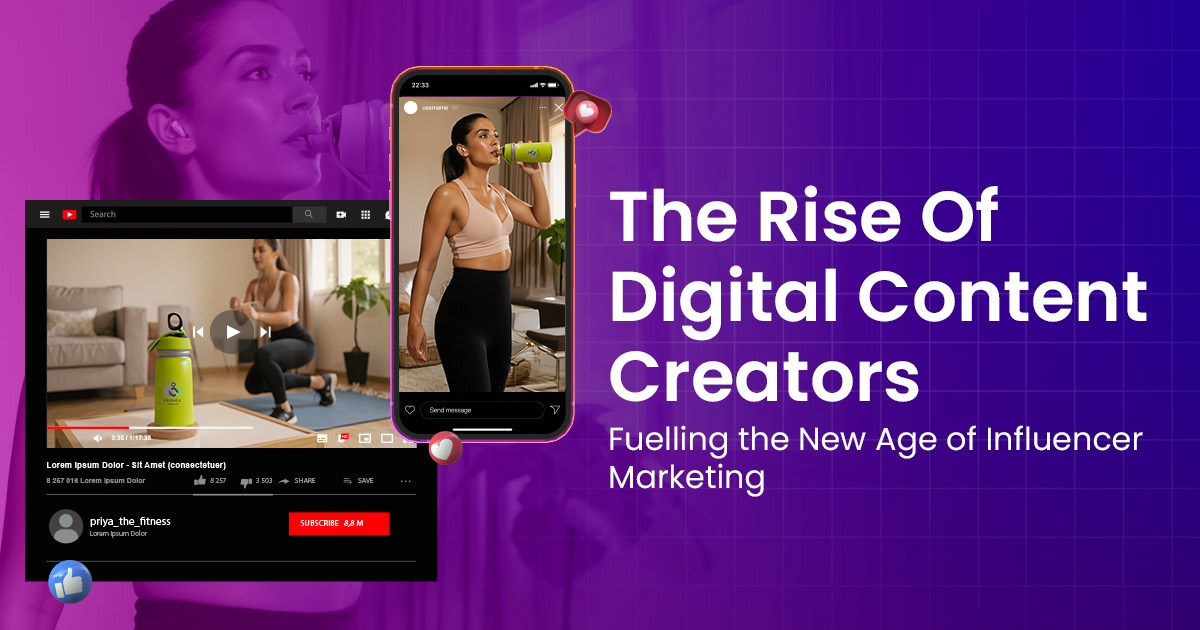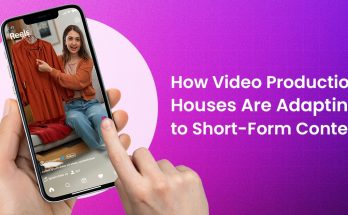
During the past years, the rise of content creators has changed the way brands are interacting with consumers online. YouTube vloggers, Instagram influencers, and Celebrities have become powerful marketing mediums and now define what consumers buy, dominate in cultural discourse, and even serve as a source of education.
The abandoned traditional forms of advertising and the transition to a more authentic and personal form of influencer marketing is precisely why there has been the emergence of platforms such as Talentrack, which help to remove the burdens of finding the right creators to fit in a brand campaign and to ensure that the right creators find a brand, there is genuineness in engagement and results can be measured.
Who are Digital Content Creators?
Digital content creators create and distribute exciting content on various web platforms such as YouTube, Instagram and blogs. They not only relate to their audience but also post replicable and steady content in terms of beauty tips to lifestyle vlogs. Their genuineness creates good trust, and they are not like traditional celebrities. They are useful partners in the digital world as brands today depend on these creators to provide significant engagement and outcomes. The increased level of trust is propelling the success of an influencer marketing campaign.
The Boom of Influencer Marketing
Influencer marketing is the method of collaboration of brands with content creators aimed at advertising products or services, providing high ROI and specific audience targeting. The report by Statista 2024 claims that the world market was over USD 24 billion and is growing at a tremendous pace. According to the report issued in 2025, Influencer Marketing Hub, brands receive an average revenue of 5.78 dollars per 1 dollar invested. This has become part and parcel of the digital marketing success, with almost 90% of marketers backing its effectiveness.
Why Are Digital Content Creators So Influential?
Digital content creators are successful as they have a raw appeal to their audience based on unfettered content and true-to-life narration. This openness generates trust, and it gives their recommendations an advantage over conventional advertisements. They are also very well-versed in their grounds and the way their audience behaves; thus, they can produce meaningful content that generates engagement and action. Consequently, the brands have deemed them as critical to the realisation of the authentic and organic promotion in the current competitive digital world.
Types of Digital Content Creators
The rise of content creators has translated into the appearance of many types of creators, and each type can give its own value:
- Nano Influencers (1K-10K followers): Community-oriented creator with strong engagement who can be an optimal choice for niche marketing.
- Micro Influencers (10K-100K followers): High engagement, influence within categories.
- Macro Influencers (100K-1M followers): A well-known and familiar face in industries, with an increased scope of reach.
- Mega Influencers/Celebrities (1M+ followers): This is commonly referred to as a high-impact/wide reach campaign.
The brands now have an opportunity to choose a suitable type of creator under the available budget, the objectives of the campaign, and the target audience.
Platforms Powering the Creator Economy
The creator economy has seen social media emerge into its rudimentary form. Here’s how:
- Instagram enables the sharing of diverse pieces of content, including reels, stories, which is ideal among lifestyle, beauty, and fashion influencers.
- YouTube suits best with long-form content like tutorials, reviews and storytelling.
- Professional content creators specialising in areas such as career advice, leadership and business have increased on LinkedIn.
- The mediums of podcasts and newsletters are also becoming new frontiers of content-driven influence.
They are also building monetisation instruments, creator funds, and brand cooperation functions to promote creator-led growth.
The Evolution of Influencer Marketing Agencies
Influencer marketing has grown into real brand collaborations as younger generations use more digital creators. In the contemporary world, producers are engaged in:
- Product launches
- Brand ambassadorships
- Affiliate marketing
- Co-branded content
- Funded meetings and gatherings
Further, the brands are actively requesting user-generated content (UGC) from creators to be repurposed in their own channels to extract the most value out of creators and extend their reach.
Challenges in the Creator Economy
Even with the boom, the digital content creators ecosystem has challenges as well:
- Saturation: The creator explosion makes it harder to stand out.
- Authenticity vs. Commercialisation: Staying credible while performing sponsored promotions is a balancing act.
- Algorithm Dependence: Creators have a high dependency on platform algorithms, which can be volatile.
- Burnout: Endless content creation can cause mental exhaustion and creative burnout.
Brands need to tread these dynamics very carefully when collaborating with influencers.
The Future of Content Creation and Influencer Marketing
The emergence of creators has become a permanent change in the consumption and confidence of the audience in the information. High-tech AI tools that are available to creators enable them to produce and distribute content of high quality and quality more effectively than ever before. New opportunities such as virtual influencing and AR experiences, as well as personalised storytelling, are being offered by the future. Brands are now more interested in long-term collaborations with creators, encouraging authenticity and greater consumer loyalty over one-off influencer partnerships for short-term effects.
Conclusion
To conclude, digital content creators are transforming online marketing. They are not simply entertainers—they drive purchases and inform consumer behaviour. As influencer marketing expands, platforms such as Talentrack enable brands to find the correct creators with whom to establish trust, engagement, and genuine audience connections.
Companies adopting this change achieve a competitive advantage in the present content-first economy. Regardless of whether you are a brand, agency, or platform, it is crucial to comprehend the influence of digital content creators in pursuing meaningful growth and long-term success.
